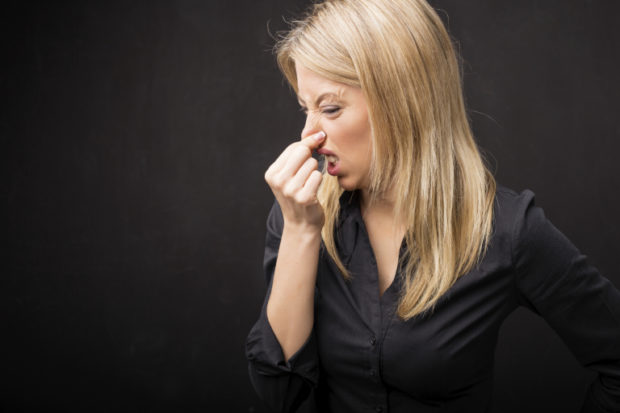
Image: grinvalds/Istock.com via AFP Relaxnews
New United States research has found that 1 in 15 Americans experience phantom odors, perceiving that there is an unpleasant, bad or burning smell when no such actual odor is present.
Led by researchers at the Epidemiology and Biostatistics Program at the National Institute on Deafness and Other Communication Disorders (NIDCD), part of the National Institutes of Health, the study looked at data gathered from 7,417 participants over the age of 40 taking part from the 2011 to 2014 National Health and Nutrition Examination Survey (NHANES).
The researchers found that one in 15 (6.5 percent) participants experienced phantom odors, with around twice as many women as men reporting the condition.
Phantom odors were also more common in those aged 40 to 60. Despite these figures, only 11 percent of those who reported phantom odor perception had discussed a taste or smell problem with a clinician.
“Problems with the sense of smell are often overlooked, despite their importance. They can have a big impact on appetite, food preferences, and the ability to smell danger signals such as fire, gas leaks and spoiled food,” said Judith A. Cooper, PhD, acting director of the NIDCD.
Study author Donald Leopold, MD, added that patients who perceive strong phantom odors often have a miserable quality of life, and often struggle to maintain a healthy weight.
Although the causes of phantom odors are still not known, risk factors identified for the onset of the condition include head injury, dry mouth, poor overall health and low socio-economic status.
“The causes of phantom odor perception are not understood. The condition could be related to overactive odor sensing cells in the nasal cavity or perhaps a malfunction in the part of the brain that understands odor signals,” said lead author of the study, Kathleen Bainbridge, PhD.
A good first step in understanding any medical condition is a clear description of the phenomenon. From there, other researchers may form ideas about where to look further for possible causes and ultimately for ways to prevent or treat the condition,” she added.
The results were published in JAMA Otolaryngology-Head and Neck Surgery. JB
RELATED STORIES:
Regular, active breaks could counteract the effects of a sedentary lifestyle
Exercising 3 to 5 times a week brings biggest benefits for mental health, says study







